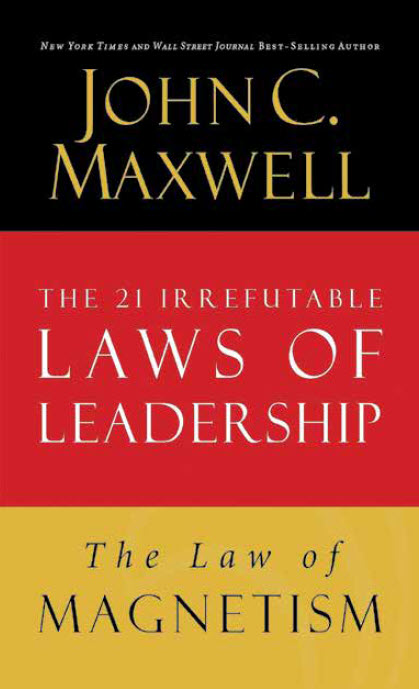 By: Eric Betts
By: Eric Betts
John Maxwell’s Law of Magnetism asserts that “Birds of a feather flock together.” This principle suggests that like-minded individuals are naturally drawn to one another, a concept that holds significant implications for leadership and team building. According to Maxwell, “Who is on your team is seldom determined by what you want, but more by who you are.” This insight stresses the importance of self-awareness and personal development in attracting the right people. Leaders tend to recruit people who share similar values, attitudes, and levels of competence, ultimately shaping the team’s culture and performance.
To leverage the Law of Magnetism effectively, a leader must commit to continuous personal growth. The caliber of a team hinges on the caliber of its leader; hence, high-quality leadership attracts high-quality team members. In Maxwell’s words, “The better leader you are, the better leaders you will attract.” Therefore, by investing in their own development, leaders can enhance their influence and draw in talented individuals who resonate with their vision and work ethic. This sets the stage for building a cohesive and high-performing team.
Moreover, the Law of Magnetism underscores the critical role that a leader’s character plays in team dynamics. Trust, integrity, and consistency are vital traits that will attract team members who value and embody these qualities. A leader’s authenticity and reliability become magnets that draw similarly principled individuals. This mutual alignment of values fosters a strong, unified community within the team, enabling them to tackle challenges with shared commitment and collective strength.
Ultimately, understanding and applying the Law of Magnetism can have a transformative impact on an organization. When a leader attracts the right team members, these individuals amplify each other’s strengths, compensate for weaknesses, and collaborate more effectively. This synergy not only enhances productivity but also contributes to a fulfilling and supportive work environment. In essence, the quality of leadership directly influences the quality of the team, hence impacting every aspect of organizational success.
By: Eric M. Betts, PhD
Assistant Professor
Hampton University School of Religion









